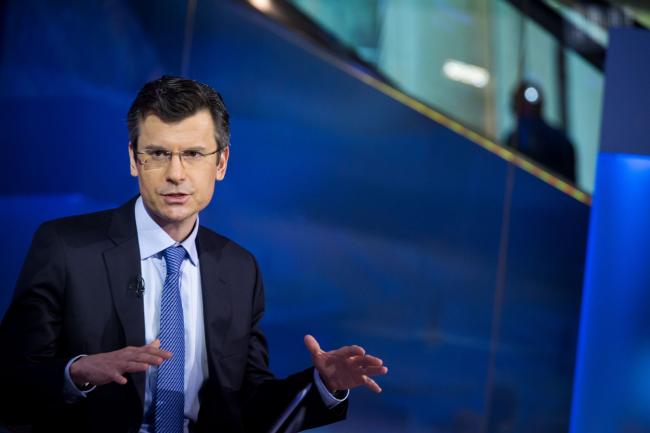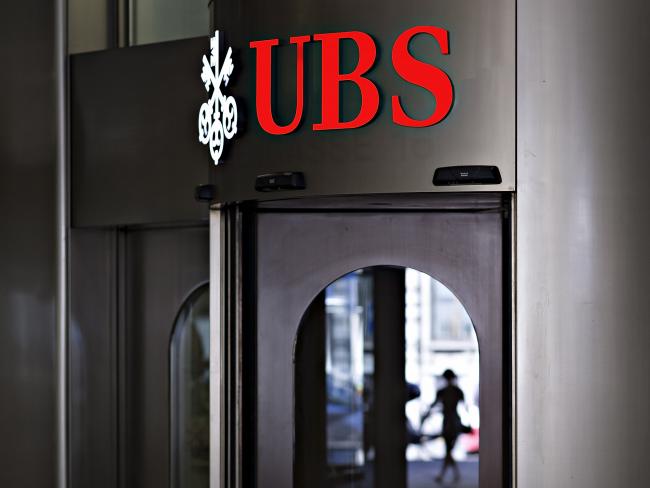(Bloomberg) -- Want the lowdown on European markets? In your inbox before the open, every day. Sign up here.
UBS Global Wealth Management, which oversees more than $2.48 trillion in invested assets, has gone underweight on equities for the first time since the euro-zone crisis.
The Swiss asset manager cut its stock positioning relative to high-grade bonds to reduce its exposure to trade wars and political uncertainty, Global Chief Investment Officer Mark Haefele wrote in a note to investors.
“Risks to the global economy and markets have increased, following a renewed escalation in U.S.-China trade tensions,” said Haefele, who had so far resisted turning bearish on stocks since the world’s two biggest economies began their trade feud last year. U.S. President Donald Trump’s decision last Friday to increase tariffs on $250 billion of Chinese goods to 30% from 25% prompted the downgrade.
The change factors in a new underweight position in emerging market stocks, which “are more exposed to heightened market volatility, a slowing global economy, and heightened trade tensions,” Haefele wrote. Earlier this month, the bank more than halved its 2019 earnings forecast for Asia to 2.8% from 6.3%, and said Taiwan and Korea will likely bear the brunt of the slowdown due to their reliance on trade and technology.
Haefele cautioned “against large equity underweights” and maintained his view that the U.S. can avoid a recession in 2020. And not everyone is ready to throw in the towel on stocks yet.
Paul Sandhu, head of multi-assets quant solutions and client advisory at BNP Paribas (PA:BNPP) Asset Management, said he expects fund flows to return to Asia if the U.S.-China trade situation “comes together.” He said that investors can take advantage of a potentially weaker U.S. dollar, and that a decline in flows to the region will soon reach an “inflection point such that asset allocation decisions are going to have to be made in favor of those markets.”
While U.S. stock-index futures rose in the European morning after Trump said Beijing was willing to resume trade talks, they pared some of the gain after China appeared to contradict that statement.
Earlier on Monday, renewed tensions from last week left a sea of red in Asian stock markets, with the MSCI Asia Pacific index down as much as 1.8%. Nomura cut its rating on the MSCI Hong Kong Index to underweight from overweight, citing concerns over the impact of a weaker yuan on H.K. dollar-priced stocks.
“With talks between the U.S. and China dominating market moves over the near term, investors should brace for higher volatility,” Haefele said. “We believe it is prudent to take action to neutralize part of this event risk.”
(Updates with Trump comment, market reaction, in seventh paragraph.)

